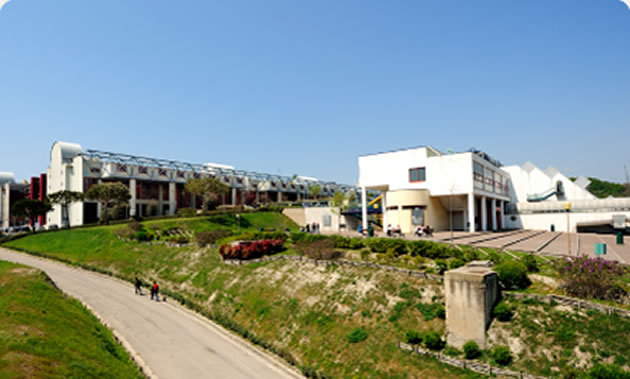LSP’s R&D approach to the “plastics problem”
In all cases illustrated above, progress relies on further advances in catalysis, which is problematic because in a mature field like catalytic olefin polymerization the chances of new discoveries are slim. Most reported improvements were obtained with sophisticated research technologies; a vast majority are incremental (e.g., catalyst optimizations), even though occasional breakthroughs were also disclosed (e.g., “chain shuttling” polymerization).
A fact that is often not fully appreciated is that, whereas our understanding of the general principles governing polyolefin chemistry and physics is deep and thorough, applying such principles heuristically to specific olefin polymerization catalysts is very difficult, because the chemical and physical variables space to work out is too complex for a deterministic approach. Therefore, trial-and-error based empiricism remains dominant, and serendipitous findings have not lost importance. This evidently calls for the adoption of High Throughput Experimentation (HTE) tools and methods. As a matter of fact, in recent years the number of R&D labs with access to HTE capabilities has grown, particularly in industry. At LSP we were among the first to implement a robust HTE infrastructure and approach in an academic environment, and our HTE polyolefin R&D workflow has now become the most advanced in academia worldwide, as is highlighted in dedicated pages of this site.
The low popularity of HTE in academia is mainly due to the reputation of being blind and somehow dull: fundamental scientists want to (a) understand, and (b) invent based on rational thinking. At LSP of course we share both ambitions; on the other hand, we also care for intellectual honesty, and do not like to sell serendipitous discoveries as due to ex-ante design. We do not need to do that, actually: with HTE, we are in the position to rapidly generate large high-quality databases of structure-properties correlations, enabling us to implement and apply predictive statistical SPR models. In molecular catalysis, we have demonstrated that ‘clear-box’ SPR models are extremely effective in the optimization of metallocene catalysts, and we are now expanding the approach to post-metallocene analogues. Not unexpectedly, heterogeneous catalysis turned out to be more complicated, but we have already achieved excellent results in the fine tuning of MgCl2-supported Ziegler-Natta catalysts for polypropylene, by means of ‘black-box’ SPR models implemented on experimental databases large enough to avoid overfitting.
In concluding this introduction, dear Visitor, I wish to warn you about a common mistake. Do not look at High Throughput Experimentation ‘simply’ as a method to run more experiments in a shorter time. After almost 15 years of state-of-the-art applications, I can tell you that with HTE we can look at our scientific problems with an augmented vision. I realized that in the pre-HTE era I was almost blind, and in fact many seemingly solid hypotheses that I formulated on inadequate experimental foundations turned out to be incorrect as soon as my collaborators and I could boost the underlying data basis. Of course, independently of the way the data is acquired, its quality must be high, which is not simple when the experiments are run in the extremely small HTE scale. I admit that, when I decided to test a HTE olefin polymerization platform for the first time, I was very skeptical, but luckily that did not prevent me from trying. Those initial results were an eye-opener, and the start of a fascinating adventure which still continues with ever new exciting developments. With the decisive aid of technology innovations, we have managed to expand the scope of our HTE workflow from polymerization reactions to microstructural, rheological and mechanical polymer characterizations. In parallel, our computational modeling activities grew into an integrated High Throughput Computation (HTC) toolkit including machine learning and Artificial Intelligence.
Collaborations with other organometallic and polymer chemists and materials engineers (lately in the newly established High-Throughput Polymer Hub of the Federico II University, www.ht-polymerhub.unina.it), with industry-university consortia (e.g. the Dutch Polymer Institute (DPI), www.polymers.nl), and several polyolefin companies through bilateral projects and, very recently, a structural synergy with a former LSP spin-off (www.htexplore.com) which has just been acquired by a multinational company, led us to develop a truly trans-disciplinary, in perspective holistic, approach.

Introduction
LSP is a global competence center for fundamental and applied studies on olefin polymerization chemistry and catalysis.

Members
We hope you Enjoy discovering all the people that belong to the LSP Project. Visit us to discover more about our team.

Research
LSP specializes in fundamental and applied studies of catalytic olefin polymerizations, aiming to better understand and improve…

Infrastructure
LSP is one of the very few academic groups operating a comprehensive HTE workflow for organometallic catalysis.

Join LSP!
We are always interested in hearing from potential new members and collaborators who are interested in a position at LSP.

Visit
Whether you are a student, a scientist, a technologist, or an occasional traveler of the Web, visit us, get in touch.
